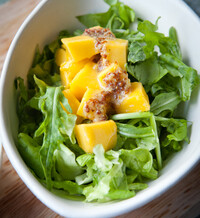A Good Autism Diet – Guidelines For Foods And Nutrition
|

|
Eliminate the Allergens
The immune and digestive systems of an autistic child are always on high alert. Their systems are very sensitive to our world with all its external pollutants and irritants, and it’s only natural to assume that certain foods may also trigger certain autistic symptoms. By removing common allergens from your child’s diet, you are allowing their delicate systems to function properly, absorb necessary nutrients, and reduce behavioral and emotional symptoms.
No caffeine – inhibits ability to stay calm and focus
No processed foods, artificial colors and preservatives – there is research suggesting that these additives trigger aggressive behavior in children
No wheat or dairy – children with autism are thought to be allergic to certain proteins found in these food sources
No sugar – increases hyper-activity followed by a mood crash
Every child is different, and you may want to keep a food journal to track what works for your child and what doesn’t. Once you have found a dietary plan for your child, stick with it as consistently as possible, but also allow for a bit of indulgence on occasion. The last thing you want is for food to be the enemy.
Offer Nutritious Foods
Instead of caving in to your child’s cravings, be sure to provide healthy options that will promote emotional stability and cognitive function. Encourage them to notice how they feel when they eat these foods to positively reinforce the link between good eating habits and feeling better.
High fiber foods – raw vegetables and fruits, whole grains (not wheat) will keep your child full longer, and help with attention span and mood
Complex carbohydrates – brown rice, lentils and sweet potatoes help to steadily release energy and increase mood for longer periods (opposite of simple sugars)
Organic proteins – beans and legumes, fish and turkey, raw nuts and seeds promote proper cognitive function and brain development
It may be easier for the whole family to adopt these eating habits to support the autistic child, rather than singling out a special diet for one person. Creating a positive, consistent menu can be very comforting for everyone around the dinner table.
I often recommend similar diets to my clients for a wide range of symptoms, and most report that they feel better when following these guidelines. Let’s face it, we all feel better when we nourish ourselves properly – no one thrives on junk food!
Author
This article was written for Insights-on-Health.com in Oct 2013 by Vicki Wiepking. Vicki is a 2008 graduate of The McKay Method School of Energy Healing in Bozeman, MT, and a certified Flower Essence Practitioner. She is the owner of Rasa Deva Wellness in Bozeman, where she offers a unique combination of energy healing, flower essences and essential oils to her clients. Vicki currently teaches energy healing classes at both the McKay Method and HealthWorks Institute.
Pages: 1 2
|
Follow this site
|

















Recent Comments